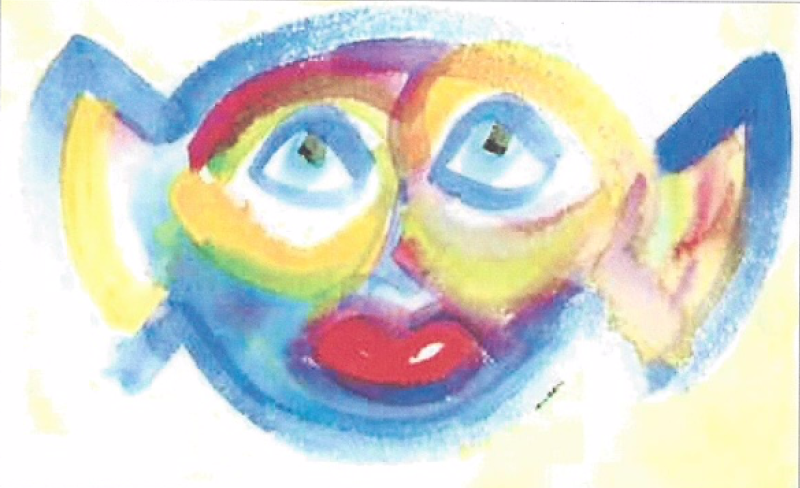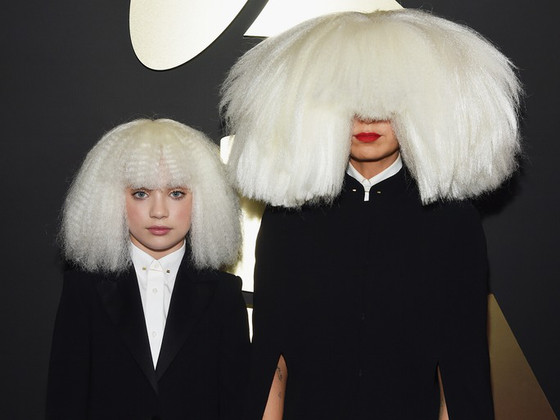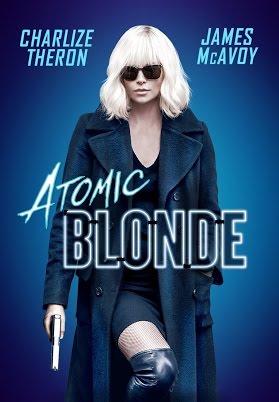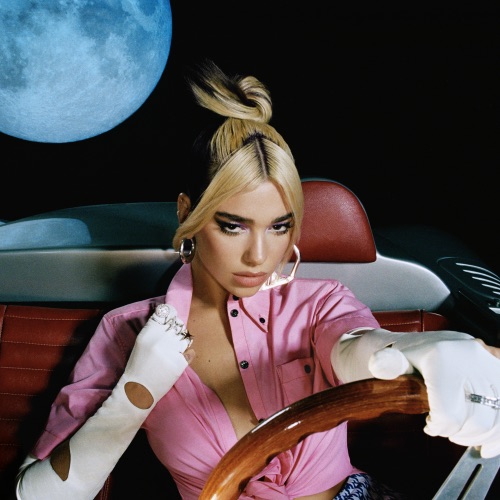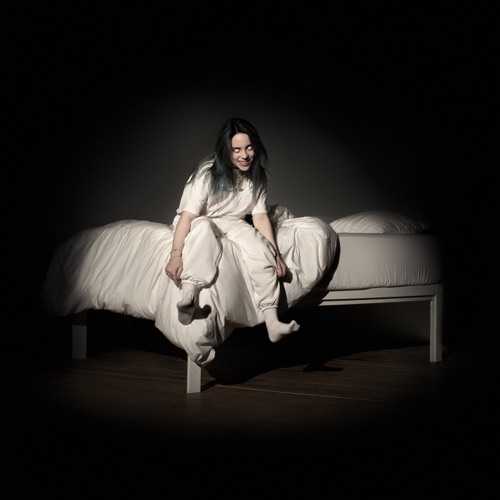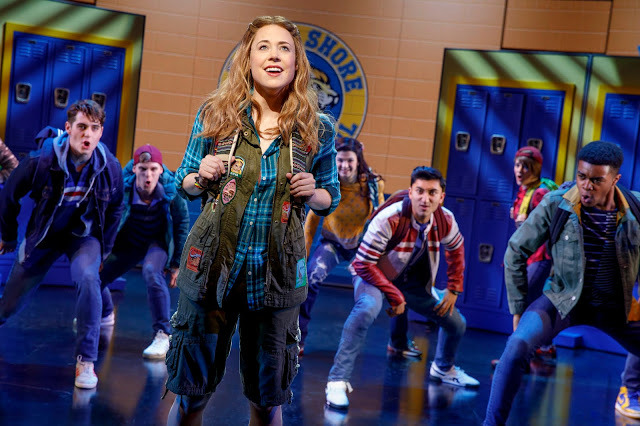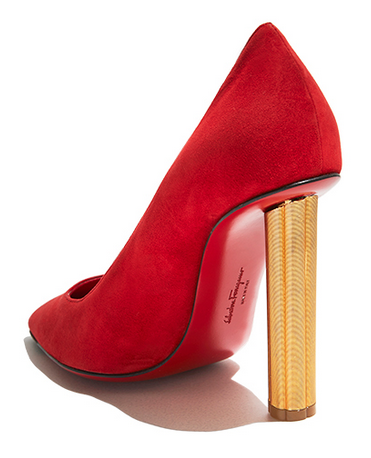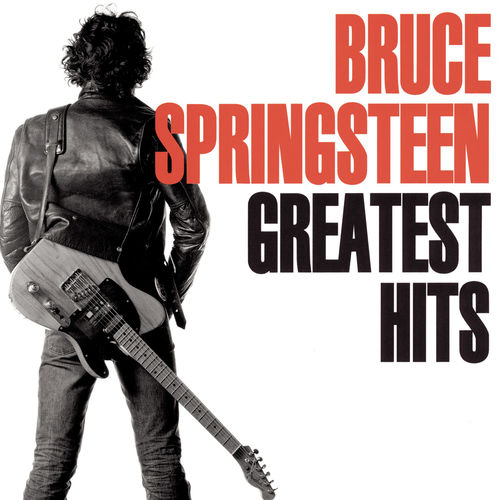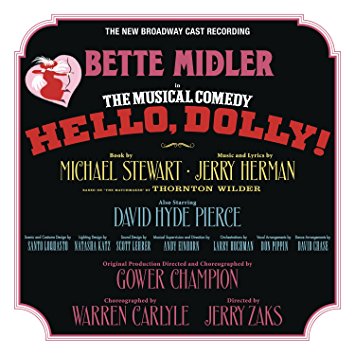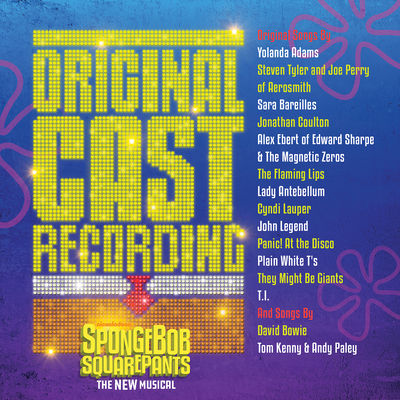ALAN CUMMING IS 'DADDY' A VERY RICH ART COLLECTOR WITH AN INFINITY POOL
 Tuesday, March 12, 2019 at 2:17PM
Tuesday, March 12, 2019 at 2:17PM
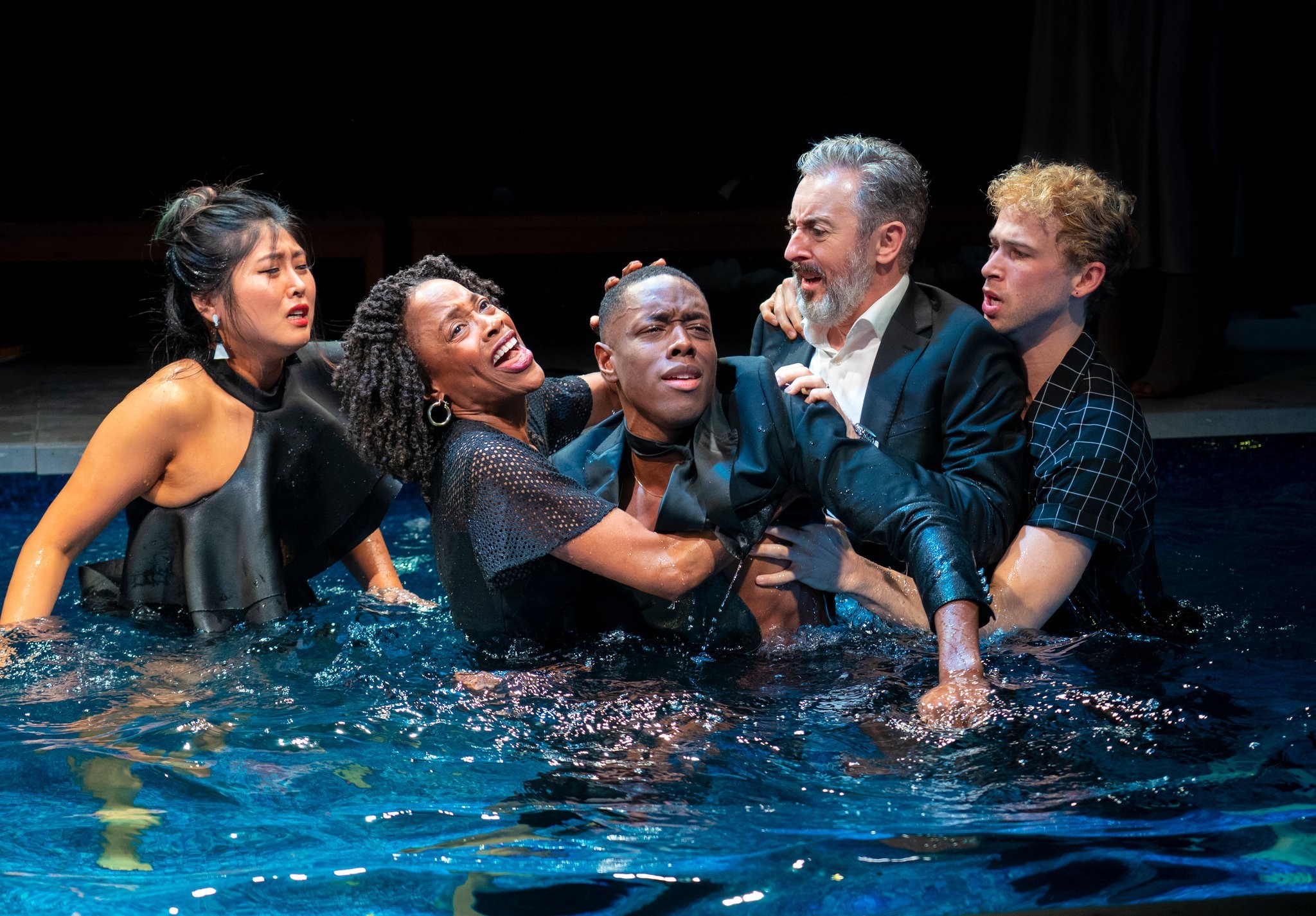 Kahyun Kim, Charlayne Woodard, Ronald Peet, Alan Cumming and Tommy Dorfman
Kahyun Kim, Charlayne Woodard, Ronald Peet, Alan Cumming and Tommy Dorfman
HENRY EDWARDS - New York - March 13, 2019
The curtain is up (if there is a curtain at all) when you take your seat at the New Group/Vineyard Theater’s lavish coproduction of Jeremy O. Harris’s “Daddy,” directed by Danya Taymor, at Signature Center, and Matt Saunders’ set is a knockout.
The set designer borrows the pool from David Hockney’s most widely recognized and loved painting, “Portrait of an Artist (Pool with Two Figures),” and places an actual infinity pool downstage that runs from wall to wall of the stage area.
Hockney’s painting was based on photographs taken by the artist of a pool in front of a modernist glass and steel building nestled in the Hollywood Hills.
Saunders places his pool in front of a modernist Bell Air mansion whose L-shaped glass hallway opens onto a minimally furnished deck.
Since those in the first row find their noses pressed almost directly against the pool, they are provided with towels in case they get wet.
Before the lights dimmed, I wondered about the cost of constructing the pool and the support system that I assumed was underneath it, maintaining, cleaning and sanitizing it, and insuring it in case leakage damaged the Frank Geary designed building.
Hockney’s painting encapsulates the essence of the idealized poolside landscape, and the two men who inhabit the classic work represent the tremendous complexity that exists within human relationships.
In a Vice magazine essay, Jeremy O. Harris, author of “Daddy,” writes “I began to slowly process what it meant to be a black, male body in a white gay's world. I wrote a play that explored a relationship between a 25-year-old black artist and a 65-year-old white art collector, to parse the ways I was cradled, coddled and collected by white institutions and how I've collected and used them in turn.”
Harris, 29, is completing his third and final semester of Yale School of Drama’s playwriting MFA program. Even though he is still in graduate school, he has had the astonishing experience of seeing two of his plays, “Slave Ship” and “Daddy,” receive first-class Off Broadway productions this season.
“Daddy” was written on a MacDowell Colony grant and also happens to be the play that earned Harris admission to Yale.
In both plays, the dramatist employs his fierce, self-consciously outrageous imagination – thinking up extreme sexual situations comes easily to him – to confront the legacies of white supremacy and the deep psychological turmoil inherent to black identity.
“Slave Play,” which underwent numerous extensions at New York Theatre Workshop, conjured an “antebellum sexual performance therapy” clinic. The radical treatment was “designed to help black partners re-engage intimately with white partners from whom they no longer receive sexual pleasure.”
Three shocking master-slave fantasy sex scenes set the play in motion, among them a ghastly encounter the tightly wound mistress of her plantation who sodomizes her tall, super-buff, violin-playing house slave.
Franklin (Ronald Peet) is the young gay black artist and Andre (Alan Cumming) is the gay older white art collector in “Daddy.”
After Andre picks up Franklin at a wild party – Franklin is high on MDMA - they retire to Andre’s mansion and indulge in some gossip about famous artists.
“I can’t shut up — sometimes I just like say and say and say everything I’ve ever thought,” says Franklin.
That is unfortunate since “Daddy” is a three-act play and almost three hours long and Harris has a predilection for writing endless, circular, repetitive dialogue.
The chat reaches an end when the pair strips.
There is plenty of full-frontal nudity in the play and plenty of splash-around-in-the-pool sexual activity. (What is a pool for?)
The program doesn’t list a fluffer, but then again, neither actor requires the services of one.
Andre is very rich; Twomblys and Cindy Shermans and Basquiats hang on his walls; somehow, he also has a terrific three-member gospel choir (Carrie Compere, Denise Manning, and Onyie Nwachukwu) hovering in the background.
The choir, so the script says, is meant to represent “Franklin’s forgotten heart and soul.”
The next day, upon Andre’s invitation, Franklin moves in.
Andre gives the young artist the pet name “Naomi” as in Campbell, and takes to spanking him. Franklin, in turn, learns to call his sugar daddy- lover “Daddy,” and starts sucking his thumb.
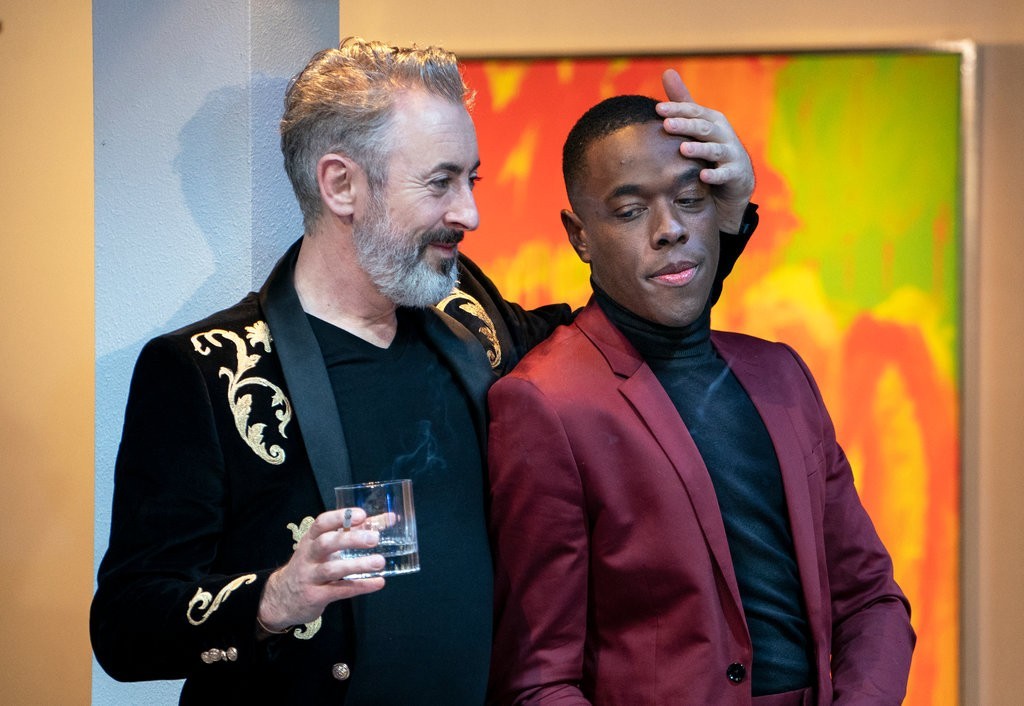 Alan Cumming and Ronald Peet
Alan Cumming and Ronald Peet
Franklin creates “weird dolls of black boys . . . possibly me, all naked, deformed,” such as those he played with as a child.
When they are not having sex or arguing about art, Cumming and the cast jump into the pool, and the actor pulls out a hand mic and breaks into a fabulously smoky rendition of George Michael’s 1987 Number One hit, “Father Figure.”
The song is well chosen. Father figure Andre desires to add Franklin to his collection of expensive possessions; it turns out Franklin has been searching for someone to fill a void left by the father he never knew.
Not too much longer, best friend Max (Tommy Dorfman) and gal-pal Bellamy (Kahyun Kim), turn up, hang out by the pool, devour free sushi, drink mimosas and snort cocaine.
There’s also Alessia (Hari Nef), an ambitious gallery owner who wants to represent Franklin.
In their own special ways, all three are shallow and insufferable,
Franklin hasn’t been returning his mother’s telephone calls and she turns up next, ostensibly having traveled from Virginia to see her son’s first major gallery show.
Chic and no-nonsense, Zora (the always wonderful Charlayne Woodard) prays frequently, talks about the devil, quotes Scripture as a weapon, and calls Andre “Methuselah.”
Her goal is to save her son’s soul, requiring her to wage all-out war with Andre.
Eventually, everyone, including Zora, climbs into the pool and Franklin is baptized and it looks like he almost drowned.
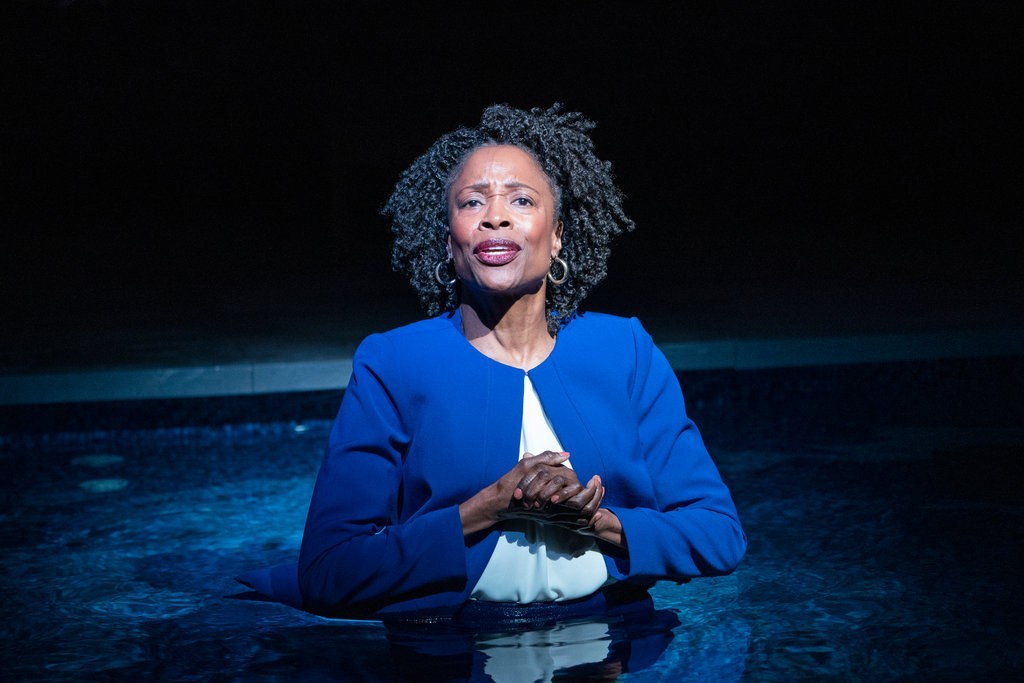 Charlayne Woodard
Charlayne Woodard
The mother calls her son’s miniature dolls “coon babies.”
When the exhibit sells out, Franklin creates macabre life-size dummies that look like him, his mother and daddy Andre, to whom he fails to give a face.
A confession of black self-hatred leads to a surreal reveal that Franklin really has ingrained daddy issues.
“Daddy” is full of tense and titillating material. There’s just far too much of it.
This is a wild play, but Danya Taymor’s direction lacks sufficient wildness to impede the exhaustion that ultimately sets in.
Ronald Peet does his level best to play a complicated character tortured by inherited racial trauma, an absent father, and a lapse of faith.
Alan Cumming’s Andre has a much easier time of it.
Toward the end of “Daddy,” a thrown-together group of “friends” take turns hurling the N-word at Franklin.
Jeremy O. Harris seems to have an inexhaustible number of ways of making white audiences uncomfortable.
More information available at: VINEYARD THEATRE
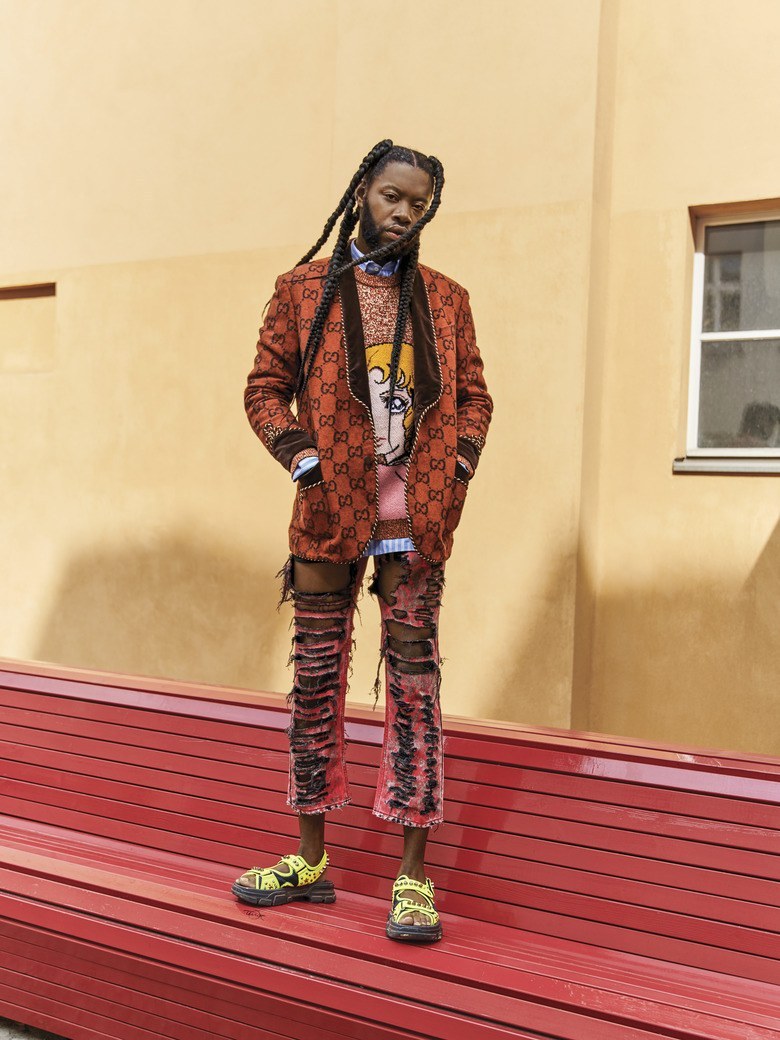 Jeremy O. Harris in Gucci
Jeremy O. Harris in Gucci
 Henry Edwards | Comments Off |
Henry Edwards | Comments Off | 
